
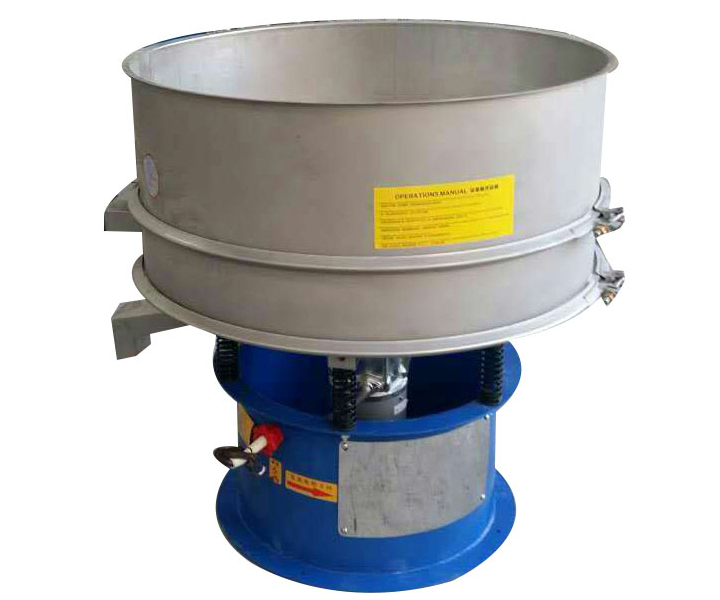
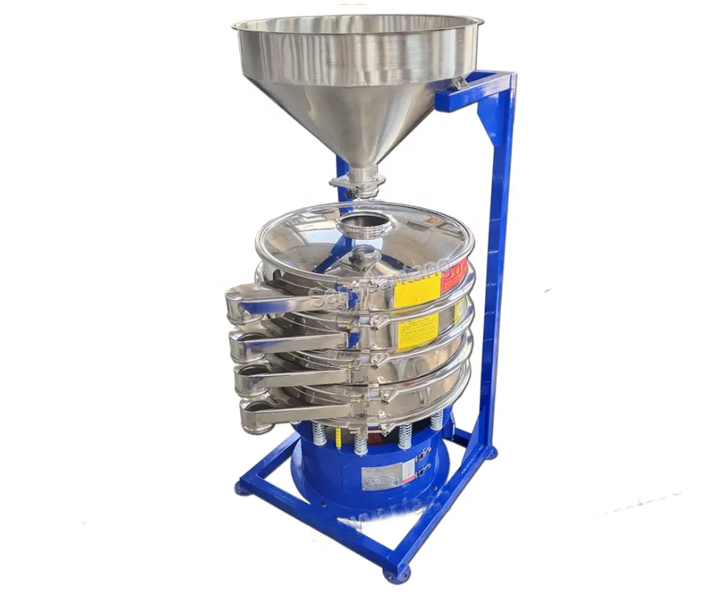
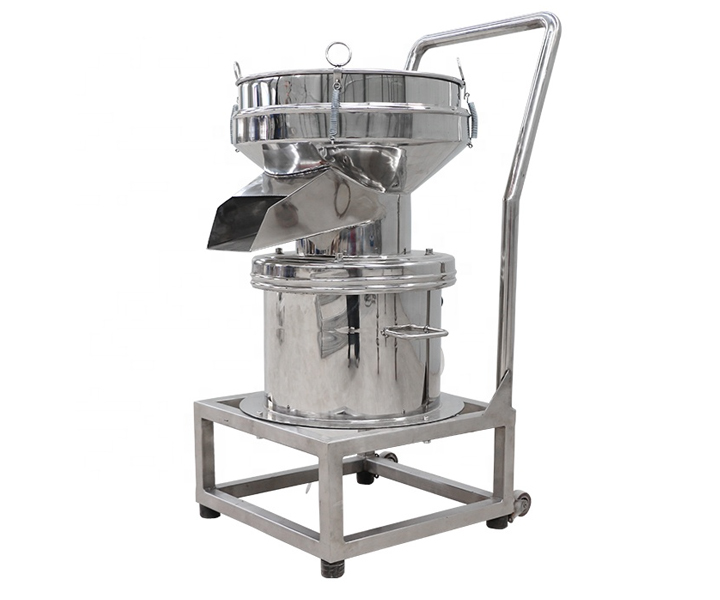
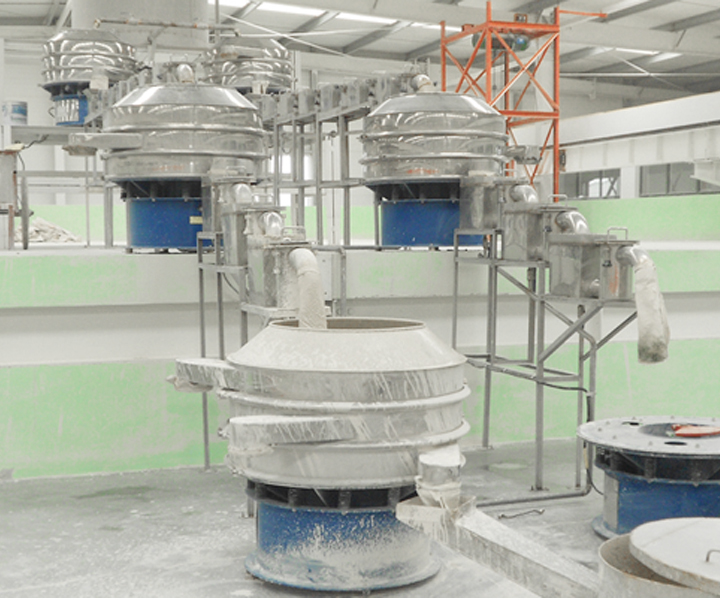





Separating solid particles or impurities from liquids, helping to purify liquids and remove unwanted contaminants or debris
![]()
![]()
![]()
Price:$500.00-$4,500.00/Set
Consult now and enjoy a 10% discount
Mesh size: within 400 mesh
Capacity: 100-3300 kg/h
Layer(s): 1 Layer
Voltage: 220V/380V or as your request
Material: Stainless Steel 304
Frequency: 50/60 Hz
Application: It can be used to filter solid particles or suspended solids and impurities suspended in liquid, suitable for filtering soybean milk, fruit juice, honey, oil, mud, etc.
Commitment: Free Shipping/5 Days Delivery/30-Day Returns/Support Customization
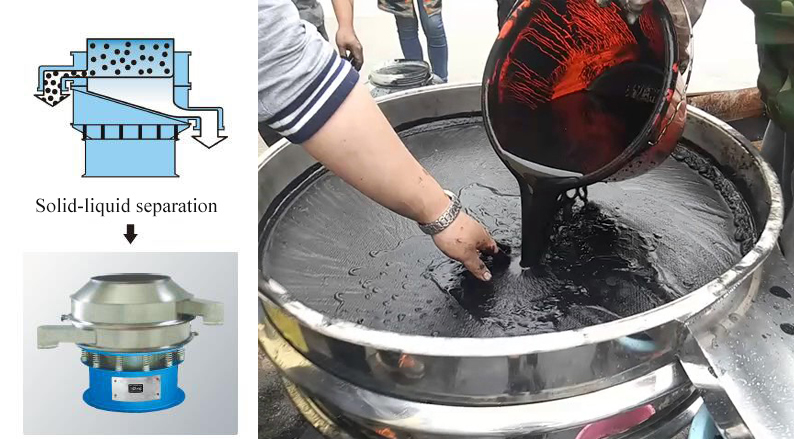
Liquid sieving machine, also known as a liquid sieve or liquid filtration system, is a device used to separate solid particles or impurities from liquids. It is commonly used in various industries, such as food and beverage, pharmaceuticals, chemical processing, and water treatment.
The basic principle of a liquid sieving machine involves passing the liquid through a mesh or screen that allows the liquid to pass through while retaining the solid particles or impurities. The mesh or screen is typically made of materials such as stainless steel or nylon, and its size or opening can be adjusted based on the desired filtration level.Liquid sieving machines can vary in size and complexity, ranging from small, manually operated units to large, automated systems.
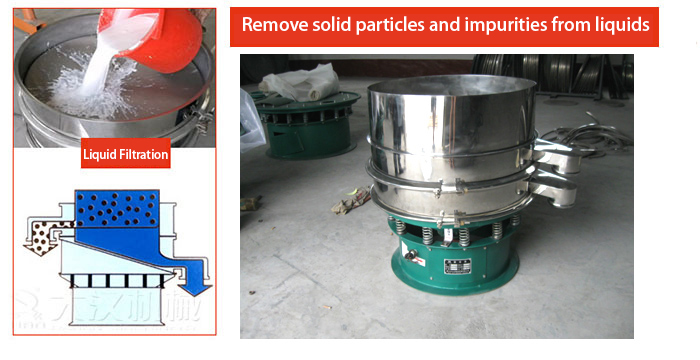
The purpose of Liquid sieving machine is to separate solid particles or impurities from liquid. It is commonly used in various industries for the following purposes:
1. Filtration: used to filter out solid particles or impurities in the liquid. This helps to purify the fluid and remove unwanted contaminants or debris. Industries such as pharmaceuticals, food and beverage, and water treatment rely on liquid sieving machines for efficient filtration processes.
2. Particle size classification: It can be used to classify or separate particles according to their size. By using sieves of different mesh sizes, the machine can retain particles of a specific size while allowing smaller or larger particles to pass through. This is useful in industries where particle size control is critical, such as chemical processing or mining.
3. Clarification: To clarify liquids by removing suspended solids. By passing liquid through a fine mesh or strainer, the machine traps solid particles and allows clarified liquid to pass through. This is common in applications such as wastewater treatment or juice clarification in the beverage industry.
4. Material recovery: used to recover valuable materials from liquid-solid mixtures. By separating out the solid particles, the machine can collect and extract the valuable components present in the liquid. This is common in industries such as mining, where separation and recovery of minerals or metals from slurries is critical.
There are several types of liquid sieving machines available, each designed for specific applications and operating principles. Here are some common types of liquid sieving machines:
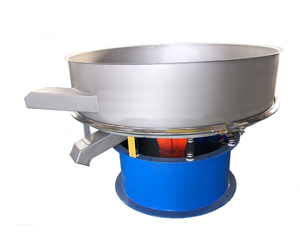
Vibro Sifter
It adopts edged design (higher upper frame) to prevent the splashing of liquid materials, and it is also convenient to observe the operation of materials on the screen surface at any time.
Mesh size: 2-500 mesh
Capacity: 100-3300kg/h
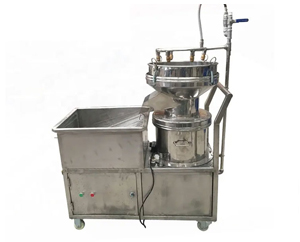
450 Filter Sieve
It is suitable for single-layer screening and filtering of manufacturers in various industries. It can handle materials with small production volume or less impurities and good fluidity. It is a screening and filtering equipment for small and medium-sized enterprises.
Mesh size: 2-400 Mesh
Capacity: 400-1200KG/H
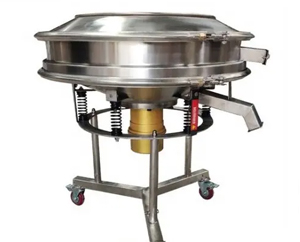
High Frequency Vibrating Screen
It adopts a 2-stage high-frequency vibration motor with a speed of 3000 rpm, which is suitable for viscous slurry, such as ceramic glaze, mud, paint, etc.
Mesh size: 0.01~5mm
Capacity: 200-1200 Liter/hour
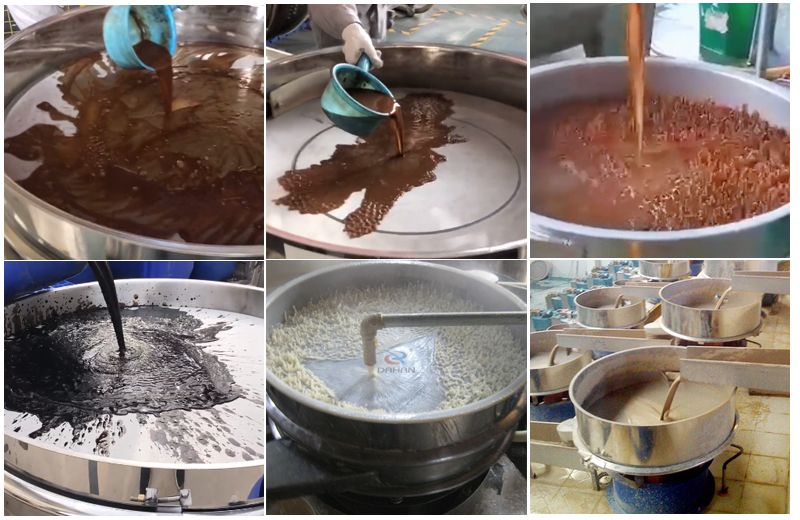
Liquid sieving machines are widely used in various industries. Some common applications include:
Beverage and brewing industry: used in the beverage and brewing industry to remove solids, sediments and impurities from liquids such as fruit juice, wine and beer. They help achieve clarity, remove particulate matter and maintain product consistency and quality.
Paint and Coatings Industry: Fluids are critical in the paint and coatings industry to ensure the desired consistency and quality of the final product. They remove agglomerates, contaminants or oversized particles from liquid paint or coating formulations, resulting in smooth, uniform coatings.
Wastewater Treatment: Wastewater treatment plants use liquid sieving machines to remove solid particles and impurities from water before discharge or further treatment. They aid in the removal of suspended solids, sludge dewatering, and the reduction of overall pollutant levels in wastewater.
Efficient Particle Separation
It can effectively separate the solid particles in the liquid to ensure a cleaner and clearer liquid. They remove impurities, debris and oversized particles, thereby improving product quality and performance.
Improve product quality
Liquid screeners help maintain consistent product quality by removing contaminants and unwanted particles. They help ensure that final products meet required standards and specifications, reducing the risk of defects or inconsistencies.
Improve process efficiency
Simplify production processes by efficiently separating solid particles from liquids. This improves process efficiency, reduces downtime and increases productivity. These machines can handle large volumes of liquid and are designed for continuous operation in industrial environments.
Precise Particle Size Control
Different mesh sizes or screens can be utilized to precisely control particle size. Industries that require a specific particle size distribution, such as pharmaceuticals or mining, benefit from the ability to sort and separate particles based on size.
Cut costs
Helps protect downstream equipment and prevent clogging or damage by removing solid particles and impurities from the liquid. This reduces maintenance and repair costs, extends equipment life and minimizes production interruptions.
Environmental protection
Contribute to environmental protection by removing solid particles, sediment or pollutants from wastewater before discharge. They aid in the wastewater treatment process, reducing environmental impact and ensuring compliance with regulatory standards.
Versatility and adaptability
Liquid sieving machines are available in a variety of types, sizes and configurations to suit different applications and industry requirements. They can be customized with different mesh sizes, screens or filter media to meet specific liquid-solid separation needs.
Easy to operate and maintain
It is convenient for users to operate and maintain. They typically feature intuitive controls, easy-to-clean components, and quick-change screens or filters to help run efficiently and minimize downtime during maintenance.
| Model | Diameter (mm) |
Feeding Size (mm) |
Frequency (RPM) |
Layers | Power (kw) |
Capacity (kg/h) |
| DH-400 | 400 | <10 | <1500 | 1-5 | 0.18 | 100 |
| DH-600 | 600 | 0.25 | 200 | |||
| DH-800 | 800 | 0.55 | 500 | |||
| DH-1000 | 1000 | 0.75 | 800 | |||
| DH-1200 | 1200 | 1.1 | 1200 | |||
| DH-1500 | 1500 | 1.5 | 1800 | |||
| DH-1800 | 1800 | 2.2 | 2000 |
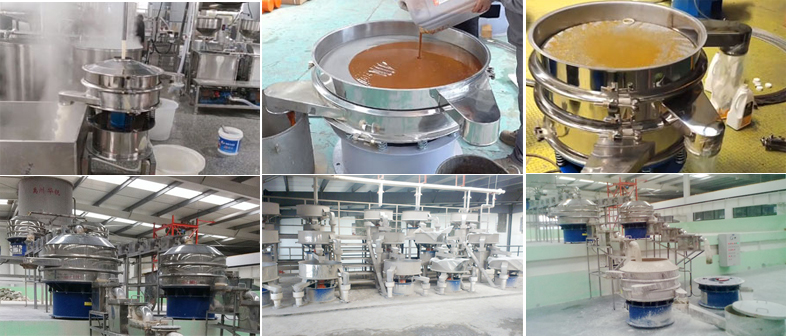
Address:China,Yanjin county forest park gate to the west 1000 meters north road.